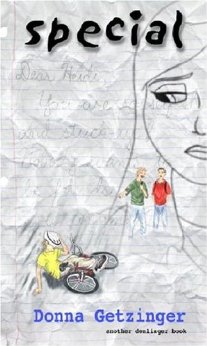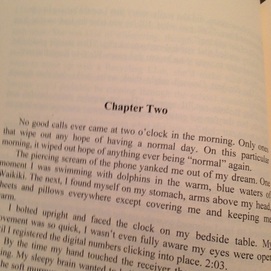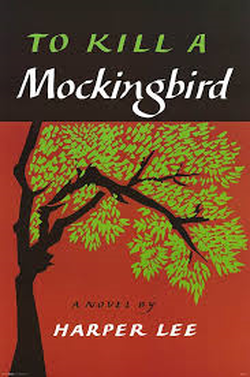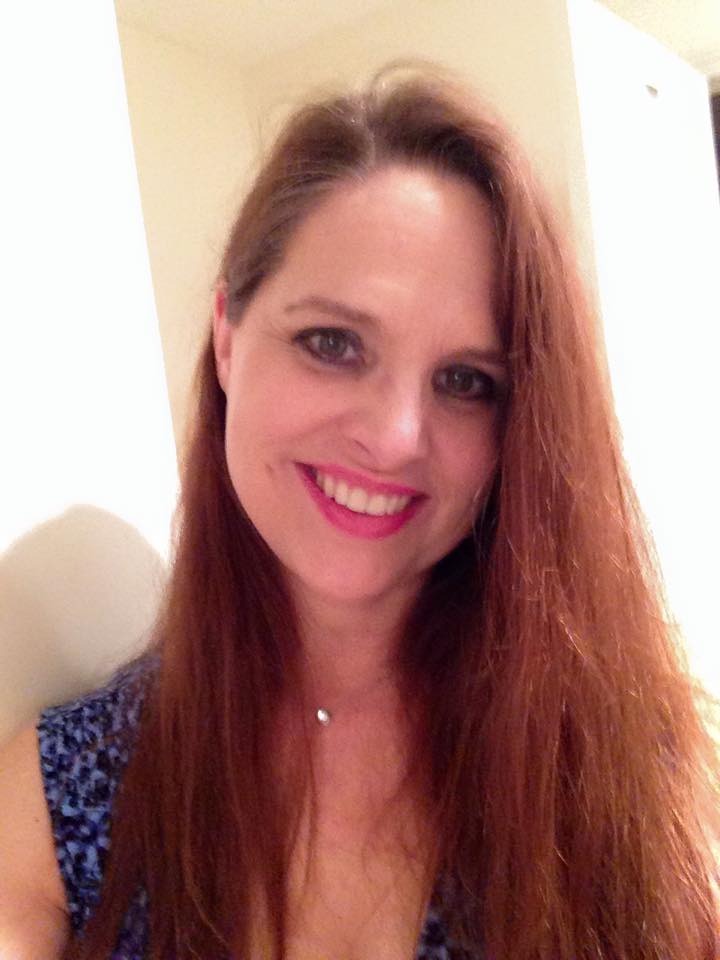 I have some good news: I’ve sold another book! Schoolwide Inc. will be publishing my MG novel No One Needed to Know in their digital library targeted to schools and educators next year. How this all came to be is a story that fits neatly with my Write and Rewrite themed blog. Back in 2004, a tiny little publisher called Denlinger’s Publishers took on my MG novel Special. This was a story based loosely on my experience as a girl with an older Autistic brother. The year this book was released was a hard year for me personally, as my 1st marriage dissolved and I suddenly became a single mother of a 3-year-old and had 3 jobs to make ends meet. I had little time to promote. Then a series of hurricanes hit Florida a couple years later, and they destroyed Denlinger’s facility. They went out of business, and my book went out of print. What to do with a novel that has been published and discarded? I put it in a drawer for a while. Ten years later, I decided that it was time to pull that book out again and tinker with it. I rewrote it by changing it to first person and updating it a touch. Then I started submitting it again under a new title and my new name. I learned about Schoolwide Inc., a 20 year old company dedicated to promoting literacy in classrooms and helping reluctant readers. They were looking to start a line of original content and were open to books that had gone out of print. I sent them mine. To my elation I heard back pretty quickly from one of the editors who told me he loved my book. He wrote glorious things like, “The world needs more books like this. It not only entertains, it educates. And it educates because you have written such an engaging story, with an authentic and sympathetic narrator.” But he followed that with: “While I am very excited about this project and hope to continue working with you on it, I feel that in its current form it is not ready for us to accept for publication.” Oh no! What? “I am inviting you to revise the work and resubmit it for our consideration.” Later, he qualified that it would be a “substantial revision”. His challenge to me was that if I revised the book (mostly by attacking the 2nd half of the book), he would consider publishing it. Oh, and he needed it done by October 1st in order to make the list coming out next year. I looked at the notes he gave me, and they all made perfect sense. I got right to work. Mostly what he wanted was for me to get away from anything that sounded like I was teaching the reader about Austism or Special Needs and stick to the immediacy of the story. I wound up discarding quite a bit, but I added so much more. I wound up tacking on 11,000 words to the book before I was done. I sent it back a couple weeks ago. Today I signed the contract and stuck it in the mail. I’m beyond thrilled that this story gets a second life and will be read by children in schools throughout the country. They have plans to do print versions down the road as well.  A few weeks ago, I wrote this essay as a guest post on the blog by author Nancy Pennick. In case you missed it there, I thought I'd repeat it here. “No good calls ever came at two o’clock in the morning. Only ones that wipe out any hope of having a normal day. On this particular morning, it wiped out hope of anything ever being “normal” again.” This was supposed to be the opening line of my novel Cry of the Sea. I was so proud of it. So proud! Yes, I envisioned its brilliance being quoted as one of the great opening lines of YA literature at many a writer’s conference for years to come. I loved it so much that no matter what I felt about the rest of the chapter, I was determined to keep that first line. Why was I so sure? Or stubborn? I have attended so many writing workshops and read so many books and articles about the craft of writing novels. Several things have been drummed into my head. “Have a great opening line.” “Hook your reader from the first moment.” “Start where the action is.” “Start your novel where the protagonist’s life changes from its normal routine.” “Start on the day that is different.” And my favorite? “Get to the main point of the plot before page 30.” So, I had this idea for a story about a girl who discovers mermaids caught in an oil spill. Based on everything I’ve learned, that meant she had to find the mermaids before page thirty. I also felt strongly that the story needed to start in the moments just before finding those mermaids. How best to do this? I thought it would be exciting to have her wake up to the alarming news of the oil spill and have her rushing out the door with her environmentalist father to get to the beach. There were some problems with my idea. I had to somehow very quickly introduce my main character and her father, their relationship, and the reason they were going to an oil spill. There was a lot of information to share to have the story make any sense. I thought I’d be clever and get some of that out with a little flashback to the night before in order to explain a few things. Only, that flashback grew from a few paragraphs to a dozen pages before coming back to the big rush to the beach. More important writing advice haunted me: “Don’t have a big flashback in the opening chapter.” “Don’t info dump.” “Show don’t tell.” Oh, poo on all of that. I had an awesome opening line! It had to stay this way. Well… I sent my first chapter to a few agents and editors. No one sent me back praise for my glorious first line. No one requested more pages either. I grew frustrated. Yet, I didn’t revise. I’d already revised the book over and over, and I didn’t know how to do it again. Not without ruining my opening line. The writing advice I knew conflicted in my brain. Bless the team at Fire and Ice, though. They stumbled past my opening chapter and read on to find the story that followed it. They offered to publish the book and sent Megan Orsini, my editor, to help me out. Her very first note to me: “I think the flashback in the opening chapter is too long. I forgot it was a flashback. Why don’t you make that the opening chapter and put the phone call and oil spill scene in chapter two.” But… but… That would put my opening line in chapter two. Do you hear me whining? I knew Megan was right, and I followed her advice. I wound up completely rewriting the whole opening to my book. With her guidance, I actually revised the opening chapter six times and the first page an additional two after that. Now my opening line is: “You ready to see how the next big change in your life is going to look” as asked by June’s father. No, this won’t put me in any lists of great opening lines, but it works. The book works better too. And guess what? We still meet mermaids on page 22. Yay! So, friends, what I’ve learned: don’t marry your words and do trust your editor. With a sly wink, however, I’m happy to announce that a woman who recently reviewed Cry of the Sea on her blog included a quote from my book. Which of my words did she use? My opening line – of Chapter Two.  Recently I saw an American Masters special on PBS about Harper Lee, the author of the classic children's novel To Kill a Mockingbird. Like most people, I've always loved the novel and considered it to be "perfect" books that have such depth and wisdom while still being entertaining to read. So, I was a bit startled to find out while watching the biography that this novel didn't flow easily from Lee's pen. She wrote it over a long period of time, and even after a year of dedicated work, quitting her job to devote all her time on it, the book was still not fully formed or publishable. Thankfully, agent Maurice Crain saw magic in her words and concept. Not many agents these days would take on a never published author whose work showed promise but was far from complete. I find that agents at writing conferences are always talking about how they enjoy helping authors mold their pieces, but the guidelines at their websites make it clear that they want books that are as close to publishable as possible. At any rate, Crain accepted her novel and sold it under the working titled of Atticus to editor Tay Hohoff at J. B. Lippencott publishers in New York. Hohoff said that the book was really a collection of short stories when he accepted it. "There were dangling threads of plot, there was a lack of unity - a beginning, a middle, an end that was inherent in the beginning," he remembered in an interview. He also said, "The editorial call to duty was plain." Again, I marvel at the fact that a publisher, knowing the book needed substantial work, took the project on and had faith it would turn out right in the end. With Hohoff's guidance, Harper Lee rewrote her novel three and half times and gave it the new now-famous title before it was ready to publish. It has been conjectured that one of the reasons Harper Lee didn't release a second novel until decades later is due to the fact that Hohoff retired and her agent, Maurice Crain, passed away. She was very reliant upon their help. This quote from Louisa Thomas of Newsweek in her article "Who Helped Harper Lee With Mockingbird?" sums it up: "We like to think of writers, like heroes, as isolated beings. To an extent, it's true; writing is often lonely and painful, a confrontation between the self and the blankness of the page. But a book is also shaped by the system of editors, agents, publishers, teachers, and readers." So, remember as you struggle with your drafts: even the great authors have to revise. A couple years ago I learned about a publisher looking for short stories featuring ghosts for an anthology. I whipped out a story, and as usual, it was too long. A friend of mine helped me chop it down to the required word length for submission. I'm not sure why, but I kept my original draft as well as the new one. Well, that's not true, I know why I kept it, I liked some of the extra stuff we cut. Al lot of the "voice" and "character" were in the extra parts, and I knew somewhere deep inside I might want to revisit this story someday.
I was right. My story didn't get picked up for the anthology, and it has sat in my files with all my other failed short stories. (I don't have a mind for short stories and have sold very few of them). Recently, I learned of a publisher looking for YA novellas between 15,000-20,000 words. This story seemed to fit the kind of plot they were looking for, but now it was too short. Luckily, I had kept that slightly longer story, but it was still only 7,000 words. I had to add a minimum of 8,000 words to it to make it marketable. What would that do to the plot? Could the story survive being doubled in length? Would it be better for it or bogged down with too much description and extra stuff. I decided to attempt it. Over the past few weeks I went through my story and added bits here and there to pump the story up and add layers to the plot. In the end, I reached my word count goal. I will submit it to the publisher and keep my fingers crossed. If they say no, the story may sit around for a while again. I'm not sure I can pump it up to a full fledged novel unless I make this story just a piece of a larger plot. At any rate, wish me luck. Here's some examples of what it looked like as a short story and now as a novella. Mark has been getting mysterious notes all morning at school that seem to be advising him as to how to write a proper love note to his girlfriend. He is beginning to wonder where the notes are coming from? See how in the original version he jumps to the conclusion that it is a ghost quickly, whereas in the new version he doesn't. Short Story version of "Passing Notes": Suddenly my heart began to race and painful chills rain down my arms and legs. Someone was communicating with me through those letters. Someone I couldn’t see but was able to see me. A ghost? And more frightening still, I realized that I might lose Bethany before we even got going. I couldn’t eat. I threw my lunch away and headed to my next class where I barely concentrated on the P.E. soccer game. All I could think about were those creepy letters and my stupid cell phone, wondering if I’d get a new message from either of them. I checked everything when I got back to the locker room before I dressed. Not so much as a smiley face from Bethany and no new notes. Novella version of "Passing Notes": My heart began to race and painful chills rain down my arms and legs. Two things had me terrified: I might lose Bethany And Those notes weren’t coincidental. They were meant for me. Whoever it was writing the notes had to be someone really stealthy to be able to slip them into strategic places for me to find and then return to make them disappear again. Also, it was someone with a keen interest in my love life and how I was conducting myself. My friends at my table were busy with their phones or gaming devices; no one was really talking much except to say, “Look at this!” or the occasional cuss. I hadn’t even told any of them about Bethany yet. Even though I’m sure they would cheer me on, none of them had much experience with girls, certainly not enough to give me advice that would be of any value. None of them, as far as I knew, had ever written a love letter or even a poem (that wasn’t required for some English assignment). Plus, none of them were in my classes that morning. Who else would care about the quality of my texts to Bethany? The whole thing had a stalker feel to it. That didn’t make a lick of sense to me, though. I’m not the kind of guy that a girl stalks. I shot up over the summer last year, so I’m not as short as I used to be. The five-year war I’d been fighting with pimples was finally coming to an end. Mom keeps saying that my shoulders are broad like my dad’s, but I’m not sure if that’s a good thing or not. I’ve never thought of myself as one of the good-looking guys, and the fact that Bethany even gave me a chance seemed like a minor miracle. So, who on earth would be interested in me to the point of stalking? Or was it one of those girls like Sadie Jones, who bought all the same clothes as Bethany and tried to imitate her all the time? Girls like her creeped me out. I could believe someone like her would send me weird notes like this to get in the middle of what was going on between Bethany and me. I almost convinced myself of that, and found myself scanning the cafeteria for Sadie to see where she was sitting when another thought hit me. Nether Sadie, nor anyone else for that matter, would have been able to read the texts I sent Bethany. I had been in the back of the room when I sent them, and odds were Bethany didn’t even have her phone out, let alone on, during class. No one could have known what I wrote, and therefore no one could tell me that I wrote the notes badly. Everyone else in the cafeteria was busy talking, eating and cutting up with their friends. No one was looking at me as far I could tell. But I felt like there were eyes on me. Right over my shoulder. The feeling actually made my shoulder tingle, like when someone is too close, and I shrugged uncomfortably. I couldn’t eat. I threw my lunch away and headed to my next class where I barely concentrated on the P.E. soccer game. All I could think about were those creepy letters and my stupid cell phone, wondering if I get a new message from either of them. I checked everything when I got back to the locker room before I dressed. Not so much as an emoticon from Bethany and no new notes. Back in 2010 I entered NaNoWriMo for the first time and wrote a 50,000 word novel in one month. Over the following year I revised it and readied it for submissions. It was a contemporary adventure story for boys. I submitted it several places and never got a single request to read past my opening 25 pages. So, I decided last fall that it was time to rethink this story. As much as I liked it, it obviously was missing something. Some higher stakes, perhaps. What if? I asked myself. Instead of my mc being a just-turned 13 year old boy, I made him an almost 15 year old girl. How would that change my plot? How would that affect the other characters in the book? I made the goal of completing this rewrite by the end of March, and here I am on March 31st proudly saying that I have done it. Yes, it still needs some proofreading and tweaking, but the major changes are made. And you know what? It actually is a much better book. It's more exciting and has a lot more oomph to it.
Now I don't suggest everyone do a major change up like this when working on rewrites. However, if something's not working with your story, ask yourself "What if?" and see if a major change is needed. Now I'm back to my WIP to clean it up and get it ready to send to publishers. Wish me luck! |
D. G. DriverAward-winning author of books for teen and tween readers. Learn more about her and her writing at www.dgdriver.com Archives
July 2024
Categories
All
|
Author D. G. Driver's
Write and Rewrite Blog
“There are no bad stories, just ones that haven’t found their right words yet.”
A blog mostly about the process of revision with occasional guest posts, book reviews, and posts related to my books.

 RSS Feed
RSS Feed